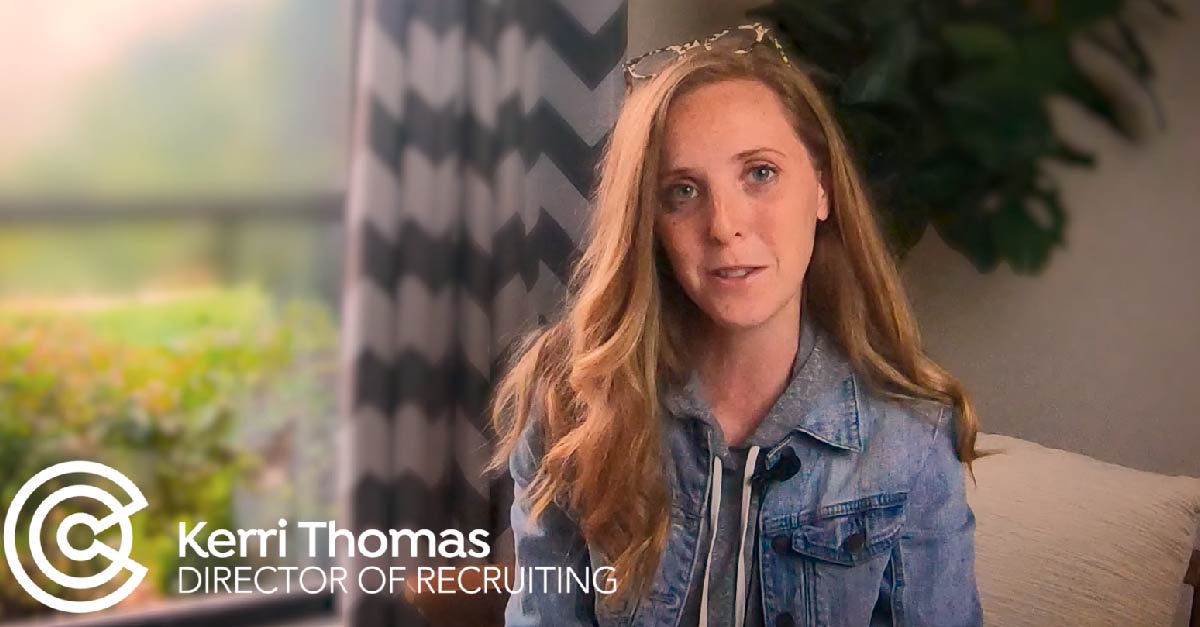How to Use Questioning Strategies for Opportunities
Posted: 11/05/2020 | Author: Kerri Thomas, Sr. Recruiter for Creatives On Call | Tags: Guides and Resources, Thought Leadership

Like many of us, I’ve been on a professional self-improvement kick lately. I had the fortunate opportunity to join a workshop with LUSHIN around the questioning strategy “Reversing”. Immediately joining the Zoom meeting I thought “Reversing, what the heck is that? How is that going to help me?” I have to say, I was pleasantly surprised to find that reversing techniques were exactly what I needed to learn to help transform my conversations, get me clearer answers, and set more effective expectations.
I wanted to share what I learned because it is relevant to both Sales professionals and Creatives trying to sell their services, there is a fine line between avoiding an answer and asking qualifying questions to uncover the real need of your clients. When we shift our thinking to one of understanding instead of knowing the answer or worse yet, telling all the answers - everyone wins!
Ever have an introductory meeting with a prospective client/customer and they start out by asking all the tough questions? For me the most asked questions tend to be around timing, price, and what makes us different than our competition.
For you, it will likely also entail those same 3 questions. So, how do you get to the bottom of the ask without talking yourself out of potential opportunities?
Think about what is important to your client. Yes, they have a project need - but what’s the underlying issue? Are they panicked about hitting a deadline their boss is putting them to task on? Are they anxious about the lack of current and future resources to successfully complete key projects? Their stresses may translate into questioning how and why you can help them as a defense mechanism.
Let’s look at those FAQs again:
THEIR ASK: “How much is this going to cost?”
Is it really about price? Or is this a way to disqualify using you to solve their problem?
Instead of answering the question out right, get them to help clarify some answers.
REVERSE: “I understand that budget is important. Can I ask some clarifying questions to ensure the value I bring meets your project and budget requirements? And is there a budget or range that you’d like to stay within? Once I know more I can give a clearer answer on cost.”
THEIR ASK: “How long is this going to take?”
If you put yourself in a box by giving a concrete (ie - “it will take 2 weeks”) that may be part of their pain point. What if your answer doesn’t work with their expectations or with the other moving pieces in the timelines they are juggling? The real question might be “Can you get this done in time?"
REVERSE: “I’m glad you asked. What do you feel are appropriate expectations for turn around? What happens if that milestone is not met?”
THEIR ASK: “Why should I go with you and not another resource?”
This is a tough one! I never want to talk ill about competition because you never know “who-knows-who”, so again I try to drill into the value that I can bring to support their requests. Remember, how can what you know help them succeed?
REVERSE: “I understand that finding the right person to help you successfully complete this request is important to you. Knowing that, I am confident that based on what you’ve told me I can fulfill everything that’s important to you.”
Not only can using Reversing techniques help uncover pain points, but it can also pull information to the surface and keep you in control of the conversation. With everything: use in moderation! If every question they ask is always met with a question they will start to feel as if you’re dodging instead of understanding.
I tend to lean on the technique of “softening” where I validate their question. This works for me (ie “I understand…” “That’s a great question!” “I’m glad you asked.”) and you may find that other Reversing methods work better for you. So try a few out and see what is most organic to your communication style:
5 Types of Reverses
1 ) Straight Reverse // “Why are you asking that question?”
2 ) Stroke Reverse // Add a softening phrase
3 ) Start-stop Reverse // Start to answer the question, then stop yourself to ask a question.
4 ) Let’s pretend // “Let’s pretend I said ___.”
5 ) Self talk // Start to ask yourself the question quietly (but audibly), then ask a reversing question to stop yourself.
I’m excited to put these into action when talking to clients! For me, Reversing will add to the conversation, help ask and answer great questions, and get to the bottom of what the real issues and pain points are.
I’d love to hear your success stories using these tips!
Best,
Kerri
